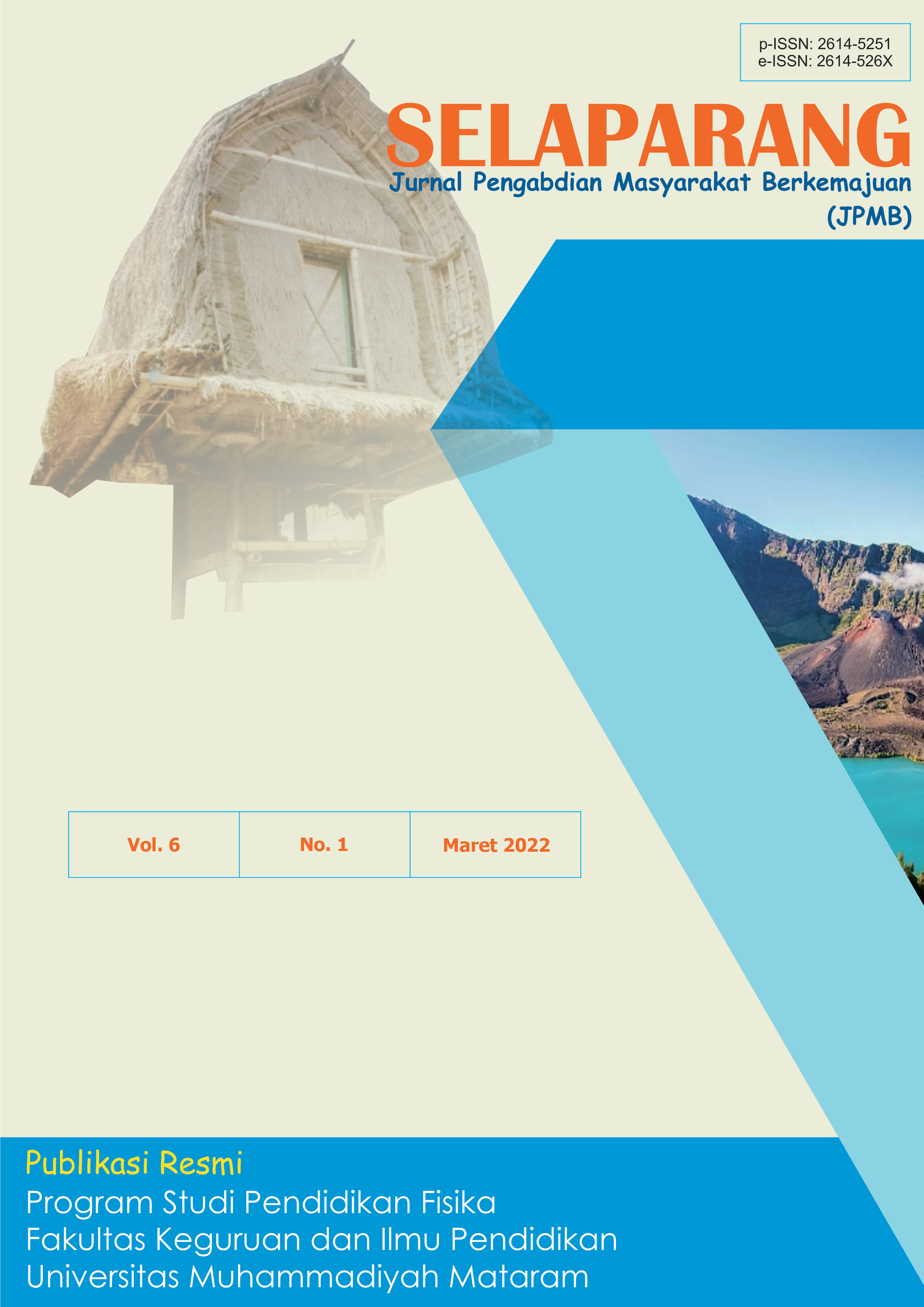PENINGKATAN PERAN SISWA SMP MUHAMMADIYAH 1 WANGON MELALUI ENTREPRENEURSHIP EDUCATION
DOI:
https://doi.org/10.31764/jpmb.v6i1.7377Keywords:
entrepreneurship, education, building a business, business idea.Abstract
ABSTRAKÂ Â Â Â Â Â Â Â Â Â Â Â Â Â Â Â Â Â Â Â Â Â Â Â Â Â Â Â Â Â Â Â Â Â Â Â Â Â Â Â Â Â Â Â Â Â Â Â Â Â Â Â Â Â Â Â Â Â Â Â Â Â Â
Entrepreneurship education perlu ditanamkan sejak dini sebagai “agent of change†untuk menciptakan generasi penerus bangsa yang siap dengan tantangan ekonomi di masa depan. Generasi muda memiliki rasa keingintahuan yang tinggi serta lebih aktif dalam melakukan kegiatan. Sehingga, dengan adanya entrepreneurship education diharapkan mampu menumbuhkan sikap disiplin, mandiri, realistis, kreatif, inovatif, serta terampil dalam memproduksi sesuatu yang dapat bernilai ekonomis. Metode yang digunakan dalam kegiatan pengabdian kepada masyarakat yaitu dengan pendekatan persuasif edukatif (Ceramah). Luaran dari kegiatan ini adalah meningkatkan peran siswa melalui kewirausahaan, termotivasinya siswa untuk berwirausaha, terampil memunculkan gagasan serta mampu memproduksi sesuatu yang dapat bernilai ekonomis, mampu melakukan perencanaan bisnis serta pemasaran produk secara mandiri.
Â
Kata kunci: kewirausahaan; edukasi; membangun bisnis; ide bisnis.
Â
ABSTRACT
Entrepreneurship education needs to be instilled early on as an "agent of change" to create the nation's next generation that is ready for future economic challenges. The younger generation has a high curiosity and is more active in carrying out activities. Thus, with entrepreneurship education, it is expected to be able to foster a disciplined, independent, realistic, creative, innovative, and skilled attitude in producing something that can be of economic value. The method used in community service activities is a persuasive educative approach (lecture). The output of this activity is to increase the role of students through entrepreneurship, motivate students to be entrepreneurship, be skilled at generating ideas and be able to produce something that can be of economic value, able to do business planning and product marketing independently.
Â
Keywords: entrepreneurship; education; building a business; business idea.
References
Bonesso, S., Gerli, F., Pizzi, C., & Cortellazzo, L. (2018). Students’ Entrepreneurial Intentions: The Role of Prior Learning Experiences and Emotional, Social, and Cognitive Competencies. Journal of Small Business Management, 56(00), 215–242. https://doi.org/10.1111/jsbm.12399
Hulgard, L. (2010). Discourses of social entrepreneurship–Variations of the same theme? EMES European Research Network, 10, 1–21. http://base.socioeco.org/docs/wp_10-01_hulg_rd__web_.pdf%5Cnhttp://www.emes.net/site/wp-content/uploads/WP_10-01_Hulgaard__web_.pdf
Landström, H. (2020). The evolution of entrepreneurship as a scholarly field. Foundations and Trends in Entrepreneurship, 16(2), 67–243. https://doi.org/10.1561/0300000083
Liguori, E., Corbin, R., Lackeus, M., & Solomon, S. J. (2019). Under-researched domains in entrepreneurship and enterprise education: primary school, community colleges and vocational education and training programs. Journal of Small Business and Enterprise Development, 26(2), 182–189. https://doi.org/10.1108/JSBED-04-2019-402
Longva, K. K., & Foss, L. (2018). Measuring impact through experimental design in entrepreneurship education: A literature review and research agenda. Industry and Higher Education, 32(6), 358–374. https://doi.org/10.1177/0950422218804912
Rashid, L. (2019). Entrepreneurship education and sustainable development goals: A literature review and a closer look at fragile states and technology-enabled approaches. Sustainability (Switzerland), 11(19). https://doi.org/10.3390/su11195343
Ratten, V., & Usmanij, P. (2021). Entrepreneurship education: Time for a change in research direction? International Journal of Management Education, 19(1), 100367. https://doi.org/10.1016/j.ijme.2020.100367
Downloads
Published
Issue
Section
License
The copyright of the received article shall be assigned to the journal as the publisher of the journal. The intended copyright includes the right to publish the article in various forms (including reprints). The journal maintains the publishing rights to the published articles.

Selaparang : Jurnal Pengabdian Masyarakat Berkemajuan is licensed under a Creative Commons Attribution-ShareAlike 4.0 International License.

